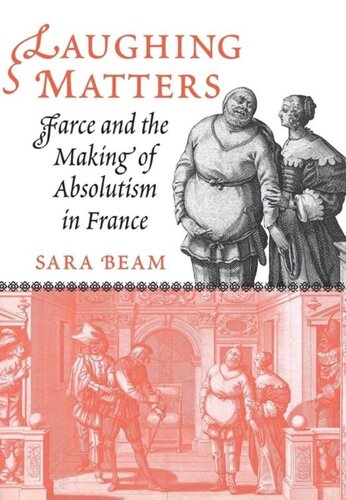

Most ebook files are in PDF format, so you can easily read them using various software such as Foxit Reader or directly on the Google Chrome browser.
Some ebook files are released by publishers in other formats such as .awz, .mobi, .epub, .fb2, etc. You may need to install specific software to read these formats on mobile/PC, such as Calibre.
Please read the tutorial at this link: https://ebookbell.com/faq
We offer FREE conversion to the popular formats you request; however, this may take some time. Therefore, right after payment, please email us, and we will try to provide the service as quickly as possible.
For some exceptional file formats or broken links (if any), please refrain from opening any disputes. Instead, email us first, and we will try to assist within a maximum of 6 hours.
EbookBell Team

4.1
90 reviewsBawdy satirical plays—many starring law clerks and seminarians—savaged corrupt officials and royal policies in fifteenth- and sixteenth-century France. The Church and the royal court tolerated—and even commissioned—such performances, the audiences for which included men and women from every social class. From the mid-sixteenth century, however, local authorities began to temper and in some cases ban such performances.
Sara Beam, in revealing how theater and politics were intimately intertwined, shows how the topics we joke about in public reflect and shape larger religious and political developments. For Beam, the eclipse of the vital tradition of satirical farce in late medieval and early modern France is a key aspect of the complex political and cultural factors that prepared the way for the emergence of the absolutist state. In her view, the Wars of Religion were the major reason attitudes toward the farceurs changed; local officials feared that satirical theater would stir up violence, and Counter-Reformation Catholicism proved hostile to the bawdiness that the clergy had earlier tolerated.
In demonstrating that the efforts of provincial urban officials prepared the way for the taming of popular culture throughout France, Laughing Matters provides a compelling alternative to Norbert Elias's influential notion of the "civilizing process," which assigns to the royal court at Versailles the decisive role in the shift toward absolutism.